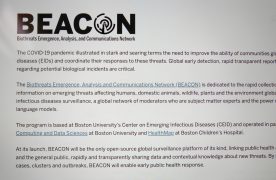Next time you exit Barnes ‘ Noble with an armful of books and an empty wallet, take a closer look at the price breakdown before cursing the bookstore and university for the sky-high prices of textbooks.
According to data collected by the National Association of College Stores, the majority (67 percent) of revenue from textbooks is absorbed by the book’s publisher. The author actually receives nine percent, while transportation to the store comprises 2.5 percent of the cost. The college typically receives about nine percent of the cost of your book, and distributes it among operating expenses, student activities, building projects and academic programs, to name a few.
The bookstore directs 10 percent of the revenue toward employee salaries and benefits, and 2.5 percent goes to maintenance, repairs, equipment, taxes, earnings and other expenses.
If a professor has requested use of the book again, the store will buy it back at 50 percent of retail value, and then sell it the next semester for 75 percent. If it will not be used the next semester, it is bought back for wholesale value, which is established by the national market.
These cost distribution and buyback percentages are fairly uniform among schools across the nation, according to Mike Gore, store manager of Barnes ‘ Noble at Boston University. However, the bookstore must cover many operating expenses, including an expensive building and many student employees.
“When it’s all said and done, there is not much [profit] left over,” Gore said.
Though packages containing textbooks and custom course packs cannot be purchased at other stores, there are other options for buying textbooks. The $7.1 billion textbook market has thrived with the addition of online bookstores such as half.com and ecampus.com.
One company, StudentMarket.com, offers a comparison shopping service on its website to find the lowest price among competing online bookstores.
“We are helping to change the rules of business for textbook shopping,” said Oren Milgram, director of student affairs for StudentMarket.com. “Instead of the campus bookstore saying, ‘Here’s what I have to sell, who wants to buy it?’ Now, students are saying ‘Here’s what I want to buy, who wants to sell it to me at the lowest price?'”
This is an account occasionally used by the Daily Free Press editors to post archived posts from previous iterations of the site or otherwise for special circumstance publications. See authorship info on the byline at the top of the page.












